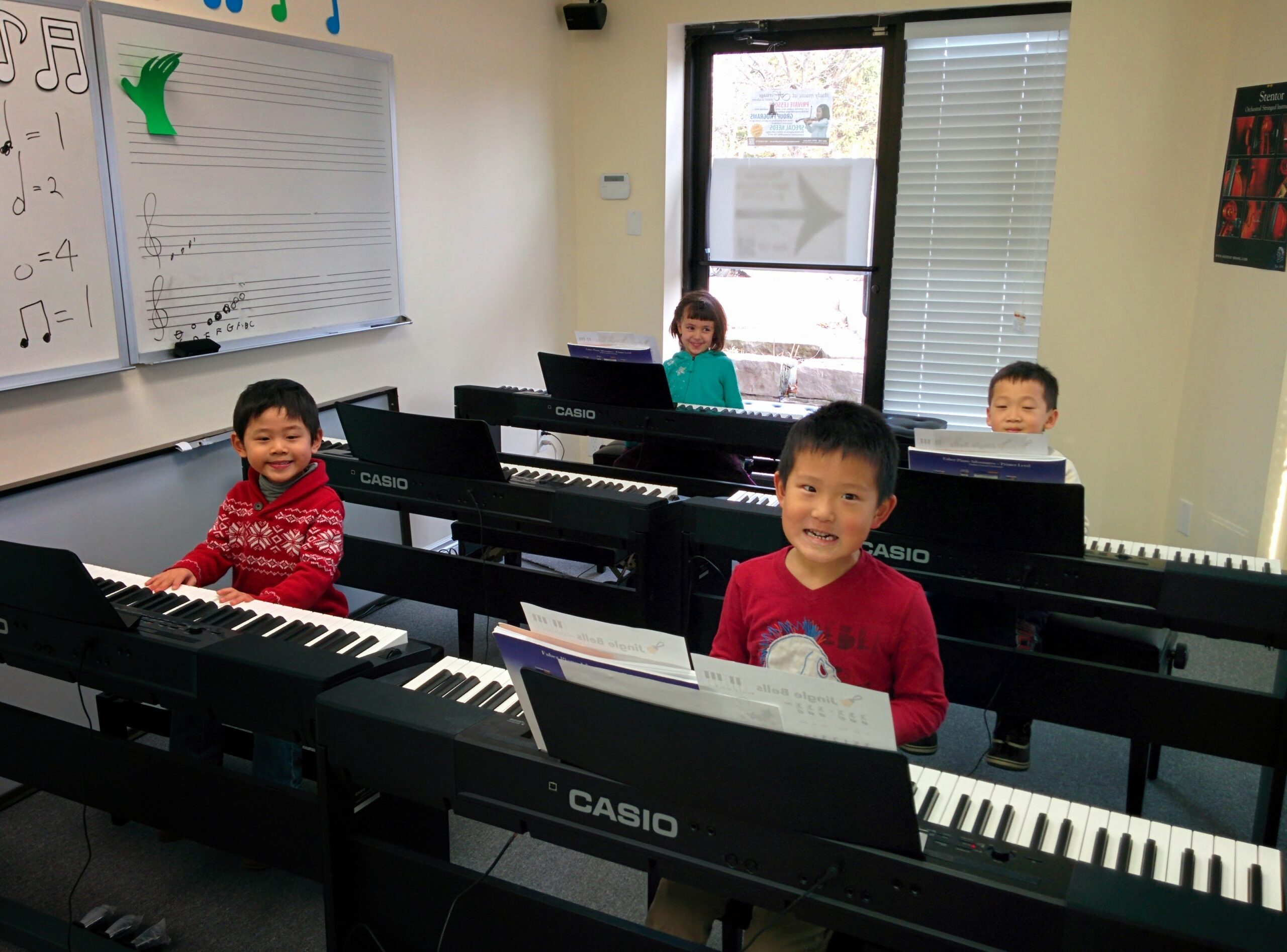Many studies highlight the importance of learning music at an early age. There are numerous cognitive and developmental benefits related to learning music before age 7. However, it is unrealistic for most preschoolers or very young children to actively participate in a 30 min private music lesson and be expected to listen attentively and follow complex directions.
Group music classes offer young children the opportunity to learn music in a fun, exciting and non-threatening environment. When learning in a group environment, children are not pressured to perform and can learn from their peers, and participate in collective activities. Children also learn from watching their parents participate in the classes as well as being guided by the teacher. Parental participation is recommended for children who are 4 years old and younger.
Young children are hands-on learners and need to be involved in various activities and movements to keep them engaged. Group music classes involve different activities that engage the whole body. Group music programs include singing, clapping, moving to the beat, musical games, body movements to music, listening activities and writing exercises that engage the child. Children tend to have shorter attention spans so group music classes consist of many shorter activities that help maintain interest. Children also strive on having specific routines where they know what to expect. Our classes are also specially structured to maintain a consistent routine to enhance learning. The use of repetition also helps children learn more complex skills.
Group Music Classes at Heritage Music Academy
- For ages 4-6 (Heritage Piano Explorers)
- Taught by experienced teachers using an established curriculum
- Every child has his or her own professional keyboard during the class
- Our classes are more than music appreciation, each child will be taught the technical and music foundations for learning a musical instrument
- Classes are fun, creative and innovative
Children will learn music through activities such as singing, playing simple pieces on the keyboard, listening activities, musical games, writing exercises and rhythmic movement.
During the programs, children will develop their listening skills, cognitive skills (by learning and problem-solving), fine and large motor skills (playing the keyboard, involvement in rhythmic activities) as well as social development (learning to share, take turns, and cooperate).

